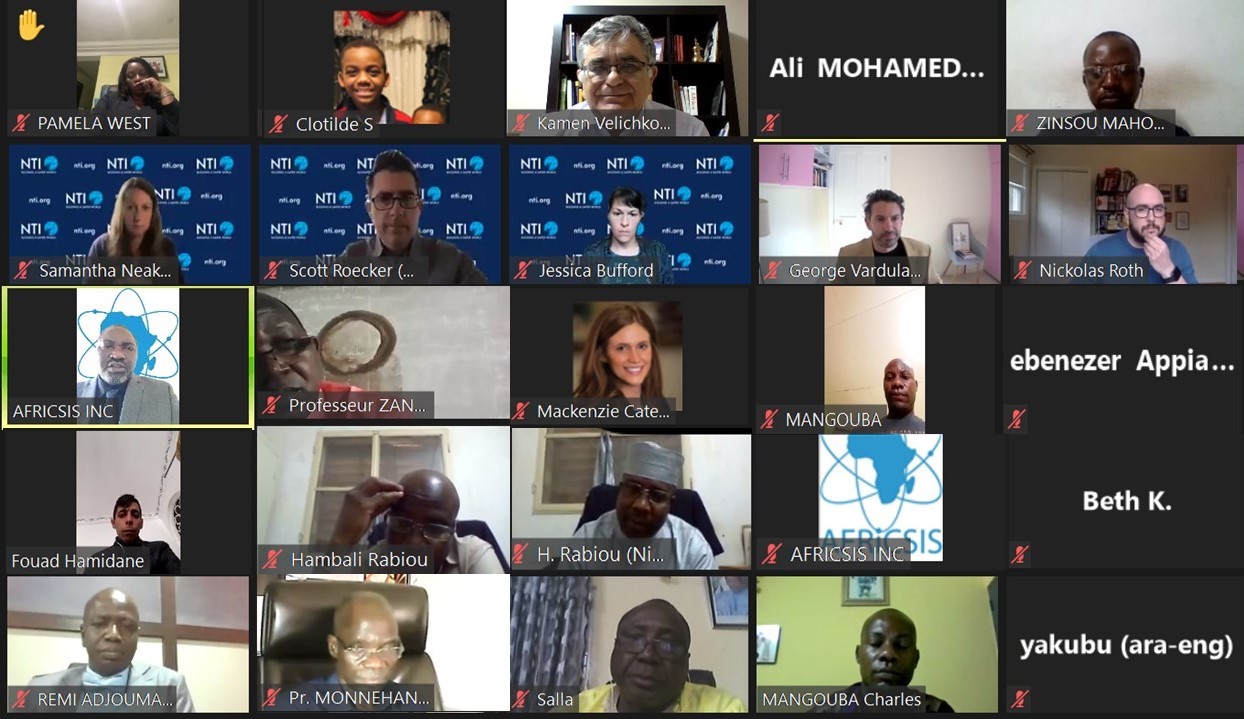ISTC participates in an African Regional Workshop on the Amended Convention on the Physical Protection of Nuclear Material (A/CPPNM), organized by NTI and AFRICSIS

 The Nuclear Threat Initiative (NTI) and the African Center for Science and International Security (AFRICSIS) organized jointly an African regional workshop on the Amended CPPNM held online on April 12, 14, and 16, 2021. ISTC was one of the international organizations, invited to take part.
The Nuclear Threat Initiative (NTI) and the African Center for Science and International Security (AFRICSIS) organized jointly an African regional workshop on the Amended CPPNM held online on April 12, 14, and 16, 2021. ISTC was one of the international organizations, invited to take part.
The workshop was a preparatory step for the treaty's first Review Conference that will convene in Vienna in March 2022. Adopted in 2005 and entered into force in 2016, the A/CPPNM is the only international legal agreement requiring the physical protection of nuclear material and nuclear facilities and the criminalization of certain actions related to the theft of nuclear material and sabotage of nuclear facilities.
The workshop provided a platform for interactive discussion with an audience of about 46 senior and mid-level officials from 23 African countries, made up of representatives from regulatory bodies and operators, criminal justice agencies and other entities responsible for nuclear security at facilities and transport. The participants in the workshop analyzed core themes related to the application of the A/CPPNM and the expectations from the Review Conference. That Conference will be called upon to assess the adequacy of the Treaty “in the light of the prevailing situation” and to ensure its sustainability through further periodic reviews. Challenges multiplied since the early days of A/CPPNM. For instance, today cyber security should be covered by a broader interpretation of the convention, albeit cyber threats could not have been included into the Treaty’s provisions.
Universal implementation of the A/CPPNM is necessary to close global gaps in physical protection, criminal law, and countries' ability to cooperate in prosecuting nuclear crimes. Preventing malicious acts of theft and sabotage will build public confidence in the peaceful use of nuclear technology, thus preserving its use and benefits for nuclear energy, medicine, agriculture, and research to support sustainable development goals. Moreover, a review of the implementation and adequacy must be made not only from national but also from regional perspective.
Various international organizations were present at the workshop: The Forum of Nuclear Regulatory Bodies in Africa, the African Commission on Nuclear Energy, the European Safeguards and Development Association, INTERPOL, IAEA, UNODC, the Vienna Center for Disarmament and Nonproliferation and others. Their voice was a critical addition to the discussion. At times, they offered explanations, raised questions, or pointed to relevant resources in response to African participants' remarks, especially when they requested external help.
In the exchange of ideas, ISTC based its inputs on the experiences acquired throughout the implementation of two EU – funded projects in Central and East Africa, and in Southern Africa, respectively, involving multiple African countries. Some of them were represented at the workshop: Angola, Botswana, Comoros, Eswatini, Ghana, Kenya, Lesotho, Madagascar, Namibia, Seychelles, South Africa, and Zimbabwe. Dr Joseph Zafimanjato, Director for Radiological Safety and Nuclear Security at the National Institute for Nuclear Sciences and Techniques in Madagascar, expressed the opinion of many others when he thanked ISTC for the provision of a web-based system for tracking nuclear material transportation, for the training and technical support to the national implementation efforts, accorded in the framework of the ISTC-implemented projects.

